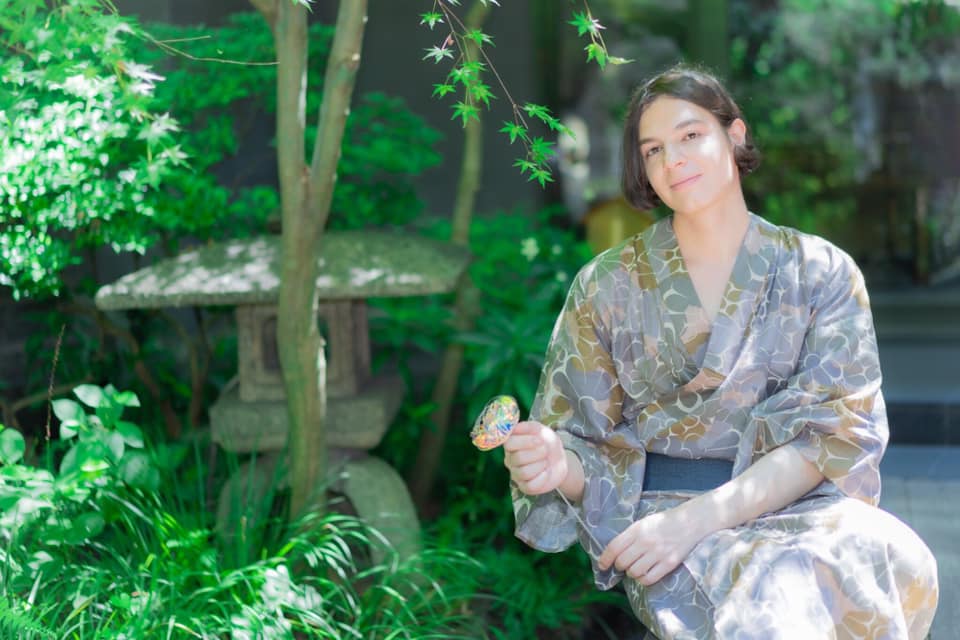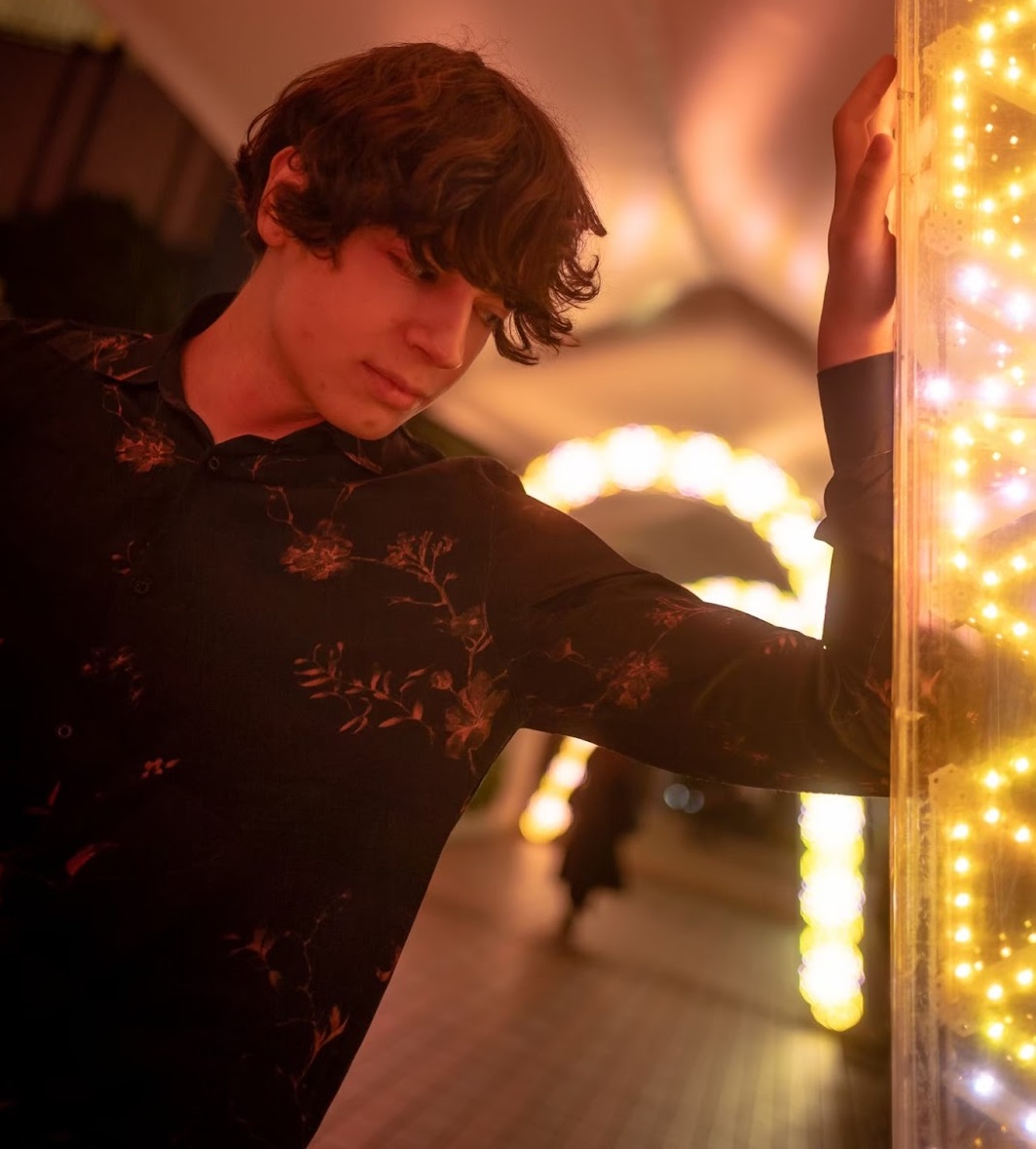
Written by Vosot Ikeida and Francesco Pantò
Photos presented by Francesco Pantò
Vosot It may seem to you, dear readers, that this is the beginning of a new series, but as you may have noticed, today is not the first Round, but the fourth.
In fact, this series started more than two years ago.
We delivered the first round in April 2019, just as Fran was starting his residency. Between the first and third rounds, he told us his life story, from his boyhood days as a hikikomori when he was fascinated by Japanese anime culture in his hometown on the Italian island of Sicily, to his university days when he studied Japanese very hard, and to his study abroad at Tsukuba University in Japan.
Round 1
Round 2
Round 3
From Hikikomori to Psychiatrist in a Foreign Country
Vosot Now that you have successfully completed two years of residency, what are you doing now?
Fran I am currently working on my doctoral research while doing clinical work in psychiatry.
Vosot Are you doing clinical work at the same hospital as when you were a resident?
Fran Not only there, but at three other hospitals in total, doing regular work and also part-time work, because I want to gain a lot of clinical experience in psychiatry.
Vosot Your doctoral course is under the mentorship of Professor Tamaki Saito at Tsukuba University, right? Where do you usually live? Tsukuba City?
Fran No, I live in Tokyo, because I need to go to many places. It's hard to find the ideal place to live, though.
Vosot How busy are you now compared to when you were a resident?
Fran I'm probably even busier now. But since it's a field I love, it gives me a lot of satisfaction, and I feel like my curiosity is being satisfied every day, which makes it worthwhile.

Can We Be Treated Just by Playing Games?
Vosot What kind of research are you doing in the doctoral course?
Fran In my doctoral course, I am continuing with the research I did before. The corona disaster made me rethink which form of research is best suitable and accessible to futoko (those who don't go to school) and hikikomori.
Initially, the purpose of my research is to develop a program that can provide mental health care in a fun and casual way, not only for futoko and hikikomori, but also for the general public who are experiencing mental problems.
For this research, we have come up with a more solid and structured program, and are currently recruiting participants, although we are only looking for people who have experienced not going to school or hikikomori for now.
Vosot You are referring to the study that was featured by our HIKIPOS in the web edition on August 19(*1).
*1. https://www.hikipos.info/entry/believe_your_light
I don't play games myself, so I don't really know, but do you think it’s alright if I take the question as "Can a person be psychotherapeutically treated by playing games?"
Fran The concept behind is to aim for positive changes in emotions and behavior by making good use of the emotional transportation toward animated characters. As I was deepening my study, I came up with the idea that, of course, this kind of thing can be done using animation, but there is a greater possibility of internal change in a game that allows the viewer to actively participate, so I created a new game with a gimmick that encourages emotional involvement toward the characters.
This game is the content of my research. It's a bit challenging, but in the future I would like to release a high quality game that everyone can enjoy, not just for research purposes.
I programmed and created the game for use in my research, and applied illustrations by a professional illustrator. The construction of the game is quite simple. In the future, I would like to ask for help from a game company for the development part and make a much higher quality production. I'm also writing a book to introduce people to this kind of psychotherapy using anime and games, as I think a better conceptualization of the therapy I came up with first, is needed.
Vosot So, you're going to publish a book as well?
Fran That's right. Firstly, I'm going to publish a book on social psychiatry. Fortunately, I have found a publisher and it is expected to be published by next March.

Hikikomori and Escapism from Reality
Vosot I think many adults think that games are just a way for young people to escape from daily life. I have been thinking about the theme of " Hikikomori and Escape from Reality" a lot lately, because I want to know to what extent this is true.
As you said "emotional involvement" earlier, I think that emotional involvement occurs in games because the player fully immerses his or her consciousness in the game. I believe that there is another reality in games that is worthy of putting that much of your consciousness into. It's a parallel reality that is different from the real world.
I guess you could say that the therapy you are considering is based on the premise of its existence. In other words, you seem to be thinking that it would be possible to establish a psychotherapy in which a person who has experienced failure in the real world and has withdrawn from it can heal his mental wounds by succeeding in the parallel world of stories and games, gain strength, and come back to the real world. What do you think?
Fran Yes, you are right.
In other words, I think there is a tendency for people to view so-called otaku content such as anime, manga, live-action movies, and games with the preconceived notion that they are experiences that allow us to deviate from the real world, or to immerse ourselves in another virtual world as a way of simple escapism. The common misconception is that games and anime are a way to escape from reality.
For this reason, otaku or hikikomori who consume this kind of content tend to have an inferiority complex towards those who get fulfilled in the real world.
They tend to condemn themselves like,
"I can't live in the real world. I'm not worthy enough to enjoy the real world".
Vosot That's certainly the trend. So what is it for you to be immersed in the world of anime and games? What do you think is the value in that?
Fran I believe that an otaku who is satisfied with his or her real life can indeed exist. In fact, I think there is no healthier or cooler way to live your life than being inspired by superheroes and becoming one in your daily life .
I see the virtual world as something that is not an escape from the real world. I think of it as a process of getting experiences from anime and games that we can bring back to the real world, precisely in order to reintroduce them to the real world. This is actually a way of thinking that has its roots in science.
Vosot Perhaps that is a process that has existed universally in the human mind even long before the birth of so-called otaku content. The ancient Greeks called it ''catharsis,'' and I think that is what it is.
There were no anime or video games in those days, but people in ancient Greece must have watched tragedies in outdoor amphitheaters, cried sometimes, feared sometimes, experienced spiritual purification, and then returned to their daily lives. In a modern sense, it is thought that they overcame their "difficulty in living" by gaining pseudo-experiences in the virtual world of Greek tragedies and bringing them back to the real world.
Fran I guess you could say that.
In the modern era, Albert Bandura (1925 - 2021), a prominent social psychologist who passed away just recently, proposed a theory that was revolutionary in the 1990s. The theory of social learning. Simply put, people can learn not only from their own experiences, but also by observing others.
Vosot Tell us about it more.
Fran In his experiment, Bandura proved that if you show a child a video of a person taking a certain action, the child will then take the same action. However, the fact that learning occurs through observation is not necessarily limited to the actions of real people.
This observation is the key. The more convinced we are of the behavior we observe, whether virtual or real, the more likely we are to want to emulate it. This is also the mechanism that explains the effects of role models on people .
In my opinion, the more emotional investment we have in the object of observation, the more effective observational learning will be. In Japan, where we have a wide variety of fictional characters, I think this kind of theory is perfect, and I'd like to use virtual experiences not as a means to escape from reality, but to increase our enjoyment of the real world. For more details, I would like to introduce it in my upcoming book.
Vosot That is a very convincing theory.
It was said that the stronger the emotions we have at the time of remembering, the deeper the memory will remain. The stronger the emotions of joy, sadness, shock, etc. that you experienced, the more likely you are to remember them. That was Freud, I think. The intensity of empathy is probably proportional to the intensity of the emotions that occur, so your theory seems to be consistent with that.
...Continued to Round 5
To the Japanese version of this article
To the Italian Version of this article

◆◇◆ Interviewer ◇◆◇
Vosot Ikeida A hikikomori in Japan, living in Tokyo. Born in 1962. Started hikikomori in 1985, since then staying hikikomori on and off with changing its style. Founded GHO (Global Hikikomori Organisation) in 2017.
Facebook : Vosot.Ikeida / Twitter : @vosot_just / Instagram : vosot.ikeida
